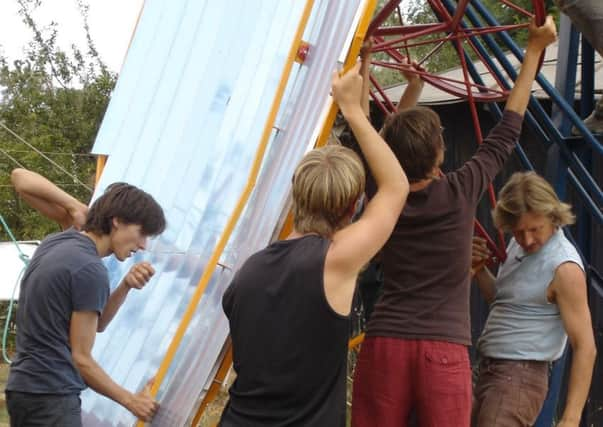Let’s prepare for a world of change


I think HG Wells had it right when he said that we are in a race between education and catastrophe. For the environmental educator David Orr this race will be won when we create an educational framework that fosters ecological imagination, critical thinking, independent thought and a greater awareness of the interdependence of all life.
Over the next 15 years, the world population is expected to increase by 1.1 billion so that, by 2030, the global economy will need to support approximately 8.4 billion people. “Globally, two billion babies will be born, each reaching school age, each needing access to high quality education” warns the UN Department of Economic and Social Affairs Population Division.
Advertisement
Hide AdAdvertisement
Hide AdThe past two years have seen a flurry of activity with governments, UN agencies, a cross-section of civil society, business and – most importantly – millions of people from around the globe engaged in shaping a global sustainable development agenda for the years beyond 2015. The 1.8 billion young people around the world represent a dynamic, informed, and globally connected engine for change. Integrating their needs, rights to choice and voices in the new development agenda will be a key driver for its success. They are key the torchbearers for a future where no one is left behind and we live within the ecological limits of the planet.
There is a growing consensus that sustainable development begins with education – but what sort of education? Would Paulo Freire’s invigorating critique of the “banking” model of education – which regards students as mere receivers of education, devoid of creative impetus – prevail? Or would we follow Orr’s suggestion and start challenging educators to equip our students with the practical skills, analytic abilities, philosophical depth and moral wherewithal to reshape the human presence in the world. By this, I mean, an education that replaces the extractive consumer economy with one that eliminates the concept of waste, uses energy and materials with great efficiency, and distributes wealth fairly within and between generations. I also mean, an education that makes quality of life, rather than open-ended economic growth, the focus of future thinking.
A recent released Unesco Education for All Global Monitoring Report proves education has the potential to transform development. The analysis provides fresh proof that investing in education, especially for girls, alleviates extreme poverty through securing substantial benefits for health and productivity, as well as democratic participation and women’s empowerment.
More specifically, education is one of the means by which we can deliver the 2015-20130 Sustainable Development Goals (SDGs) currently under final negotiation. One of the SDG targets is to “ensure all learners acquire knowledge and skills needed to promote sustainable development, including among others through education for sustainable development and sustainable lifestyles, human rights, gender equality, promotion of a culture of peace and non-violence, global citizenship, and appreciation of cultural diversity and of culture’s contribution to sustainable development”.
In designing and implementing the new sustainable development agenda, the international community has been confronted with some blunt questions. Are we content merely with re-shuffling the deck or are we prepared to initiate a major overhaul of the total system and accept responsibility for the consequences of decisions upon human well-being, the viability of natural systems and their right to co-exist.
An old biblical reference warns about the dangers of pouring new wine into old wineskins, else the new wine will burst the bottles, and be spilled. The question for us is slightly different: will we continue to pour considerable quantities of old wine into the new bottle of global change, or are we brave enough to re-educate ourselves and re-establish the integral relationship between natural processes and human activity?
• May East is Chief Executive of CIFAL Scotland,www.cifalscotland.org
SEE ALSO